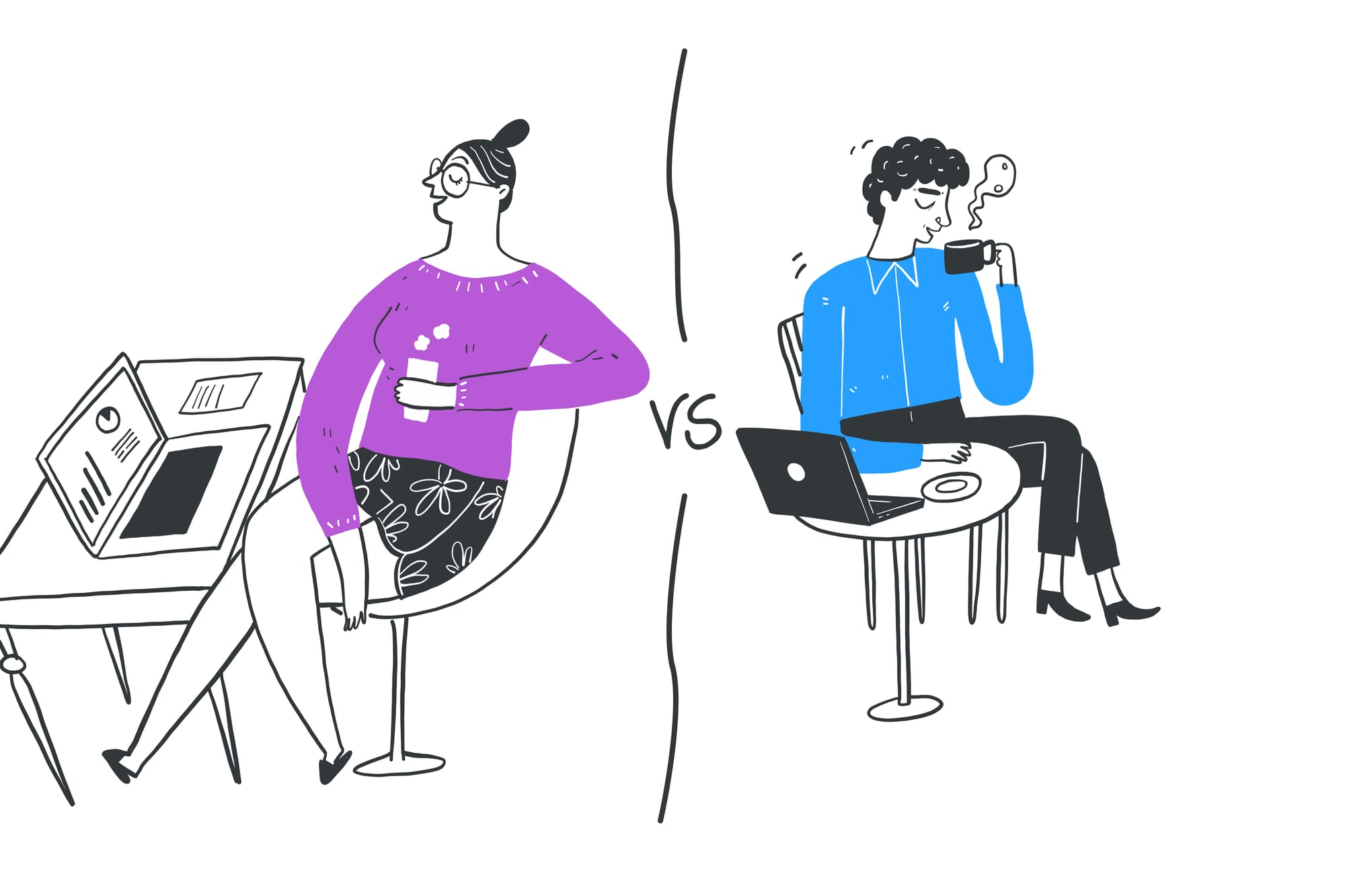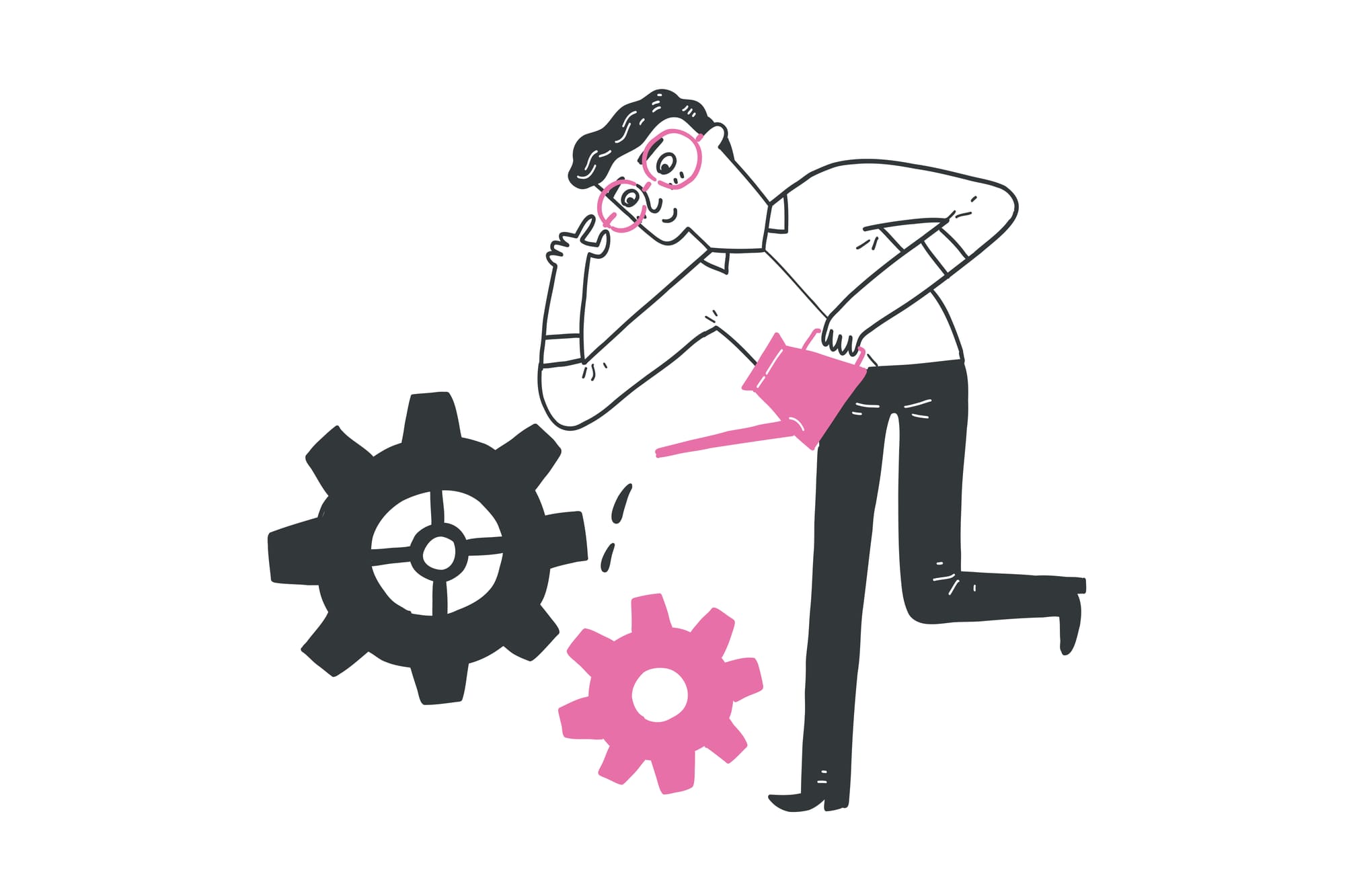So, things are moving along quite well. We’re getting great feedback from seasoned veterans in the IT world. Our own engineers are starting to #kudos us on Slack for really coming through on such a cool product. Our market and product research has convinced us that how are you could be a real game changer in software engineering.
As we’re learning more about how to improve 1:1 meetings in software engineering, the participants in our research calls are dropping solutions they’ve used in the past. Lattice, 15five, and Leapsome come up quite often. But are they really our competitors?
The closest competitors to how are you may appear to be similar but are really different in scope. Moreover, they seem too focused on different niche groups. Have a look 👇🏽
As we’ve mentioned before, the developer intelligence platforms focus too little on the human side of software engineering. The data they provide users are too complicated and address work output and productivity metrics a bit too much.
The people management software are too broad and focused too much on people. What about software developers? They don’t address the specific challenges of managing software engineers. So, we’re not surprised to learn that some of the participants on our calls were not very happy with these solutions due to their limitations. Still, our participants seem reluctant to cancel their subscriptions because there’s “nothing significantly better on the market”.
Forging Ahead With Ballpark Estimates
We had mockups and a lot of insights, but we haven’t started coding yet. Before any of that would happen, Krzysztof and Ada consulted our senior engineers about how much how are you would cost to build. This estimate would include all the features and modules for the MVP.
The result was a total of 7,491 hours, from backend all the way to design. Pure work, no frills. That’s easily around mid six-figures.
Although we knew this would be an expensive undertaking, we decided that now would be a good time to try to inject some investment capital into how are you.
We created a pretty awesome pitch deck (and video pitch, too) and sent them out to about 54 investors who specialized in Future of Work B2B SaaS. Nobody budged. We knew this would be hard. For now, I would have to continue bootstrapping it myself as how are you was still in pre-seed. The last feedback we got was that investors wanted to see some traction before making an investment. Makes sense.
Because a full prototype was out of reach, we decided we would first build how are you for Slack with 1-2 engineers, a product owner, a product researcher, a marketing guru, and myself.
Here’s what how are you for Slack looks like:
HAY for Slack
how are you for Slack is our MVP of the MVP. We took this route because our user base was largely there, and we could cut costs. We honed in on wellbeing because that was the most important value for our research call participants.
The bot’s main feature will be to check up on happiness in the form of a survey that runs on autopilot. That means engineering managers won’t have to monitor or triage data as it will be presented to them in a way which could allow for open and honest discussions with their direct reports.
More specifically, how are you for Slack will help engineering managers:
- Monitor wellbeing & job satisfaction;
- Identify concerning mood trends that may lead to burnout;
- Gather survey responses and analyze the results;
- Give their engineers personalized attention based on actionable insights;
It’s Been a Crazy Product Journey So Far
We don’t want to overpromise on how are you and end up not delivering. That’s why our research calls were very important and actually resulted in great insights. We carefully considered what our participants said and made pivots and the necessary changes to ensure they’d be happy using how are you.
We are truly grateful to the industry experts who’ve enlightened and engaged us as thought-developers, co-creators, and in many ways, product rescuers.
We want how are you to be the best tool engineering managers could use to deliver real value to their developers’ growth and wellbeing.
We hope we got it right, but if not, feel free to let me know at tomek@howareyou.work





